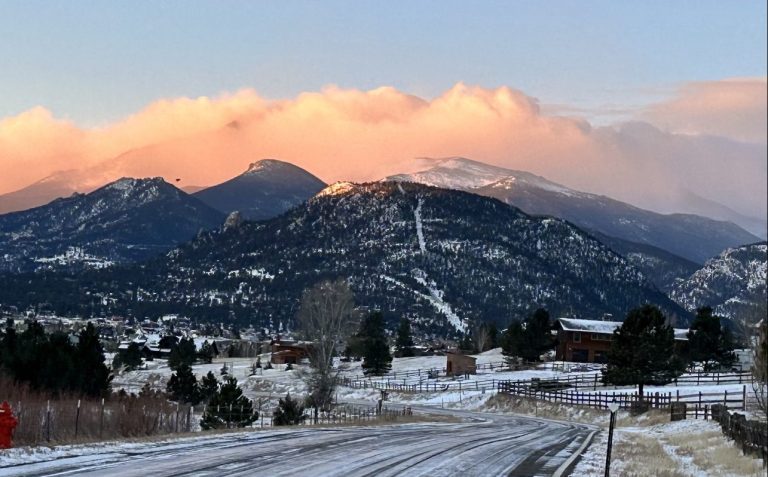How to Prepare for Altitude in Colorado: Tips to Avoid Altitude Sickness
Planning a trip to the breathtaking mountains of Colorado? Whether you’re heading to Estes Park, Denver, or exploring the heights of Rocky Mountain National Park, it’s important to understand how altitude can affect your body. Without proper preparation, altitude sickness can derail your vacation—but with a few proactive steps, you can enjoy your mountain getaway safely and comfortably. We hope this guide on how to prepare for altitude in Colorado helps you maximize your time in Colorado!
What is Altitude Sickness?
Altitude sickness, also known as acute mountain sickness (AMS), occurs when your body has difficulty adjusting to the lower oxygen levels at higher elevations. Estes Park, Colorado sits at 7,522 feet above sea level, while many areas in Rocky Mountain National Park exceed 10,000 feet. At these heights, your body needs time to adapt.
Common Symptoms of Altitude Sickness:
- Headache
- Nausea or vomiting
- Dizziness
- Fatigue
- Shortness of breath
- Loss of appetite
- Difficulty sleeping
Symptoms usually appear within 6 to 24 hours of arrival at altitude and can range from mild to severe. In extreme cases, altitude sickness can develop into more serious conditions like high-altitude pulmonary edema (HAPE) or high-altitude cerebral edema (HACE), which require immediate medical attention.
How to Prevent Altitude Sickness
Fortunately, you can take several proactive steps to prevent altitude sickness and help your body adjust more easily.
1. Hydrate Before You Arrive
Start hydrating several days before your trip. Your body adjusts better when fully hydrated. Aim to drink at least 3 liters of water daily in the days leading up to your arrival in Colorado.
For optimal hydration, consider adding electrolytes. We recommend LMNT for a zero-sugar electrolyte option. It supports hydration and helps replace minerals lost through increased respiration at altitude.
👉 Shop LMNT herehttp://elementallabs.refr.cc/kimbranum
2. Consider Preventative Medication
There are prescription medications that can help your body adjust to high altitude. These medications can help increase hemoglobin production, improving your body’s oxygen-carrying capacity before you arrive.
Thin Space Wellness, based in Estes Park, Colorado, offers Telehealth consultations before your trip. Through a quick online visit, we can prescribe altitude support medications to help you acclimate faster and avoid altitude-related issues.
👉 Learn more about Thin Space Wellness here
3. Avoid Alcohol (At Least at First!)
Alcohol affects your body differently at altitude. It can intensify dehydration and make altitude symptoms worse. Plus, it may impair your judgment faster than it would at sea level.
We recommend limiting alcohol intake for at least the first 24 to 48 hours after arrival. If you do indulge, drink slowly and continue hydrating with water or LMNT.
4. IV Hydration Can Help Upon Arrival
Many visitors benefit from IV hydration therapy after arriving in Estes Park. It helps you replenish fluids, electrolytes, and essential nutrients quickly. This can ease the adjustment process and help prevent headaches, fatigue, and other symptoms.
Thin Space Wellness offers IV hydration treatments in Estes Park. Whether you’re feeling symptoms already or want to proactively boost your hydration, IV therapy is a smart option.
👉 Book IV hydration with Thin Space Wellness
5. Prepare Infants and Children
Children and infants are also vulnerable to altitude sickness. They may show symptoms such as:
- Irritability
- Poor feeding
- Trouble sleeping
- Unusual tiredness
To help kids adjust:
- Hydrate them well before and during the trip
- Plan plenty of rest time during your first few days
- Avoid overexertion
- Watch closely for signs of discomfort or illness
Consult with your pediatrician before travel, especially if your child has any underlying health conditions.
What To Do If You Get Altitude Sickness
Even with preparation, you might still experience mild symptoms. Here’s how to manage them:
- Rest: Take it easy and avoid overexertion.
- Hydrate: Increase water and electrolyte intake.
- Oxygen: Portable oxygen tanks or oxygen bars can help temporarily.
- Medication: Take prescribed altitude medication as directed.
- Descend: If symptoms worsen, descending to lower elevation is the best treatment.
Remember, severe symptoms like confusion, difficulty breathing, or chest tightness require immediate medical attention.
Don’t Let Altitude Wreck Your Trip
Many visitors don’t realize how impactful altitude can be until it’s too late. Unfortunately, altitude sickness can ruin your first few days and limit your ability to enjoy outdoor activities like hiking, wildlife tours, and scenic drives.
However, by planning ahead, staying hydrated, and considering medical support options, you can avoid the worst effects and have an incredible time in the mountains.
How Thin Space Wellness Can Help
Located in Estes Park, Thin Space Wellness offers a range of services to support your altitude adjustment:
- Telehealth consultations and prescriptions before your trip
- IV hydration therapy upon arrival
- Electrolyte support and wellness supplements
Our goal is to help you feel your best and enjoy every moment of your Colorado vacation.
👉 Schedule a consultation or book IV hydration here
Final Tips for Altitude Travel
- Hydrate well before and during your trip
- Avoid alcohol early on
- Rest your first day at altitude
- Know the symptoms of altitude sickness
- Consider medication and IV hydration
With the right preparation, your trip to Colorado can be safe, comfortable, and full of unforgettable memories.
Don’t let altitude hold you back—be prepared and travel well!
Want to know more? Check out our blogpost on how to pack and prepare for your Colorado vacation.







